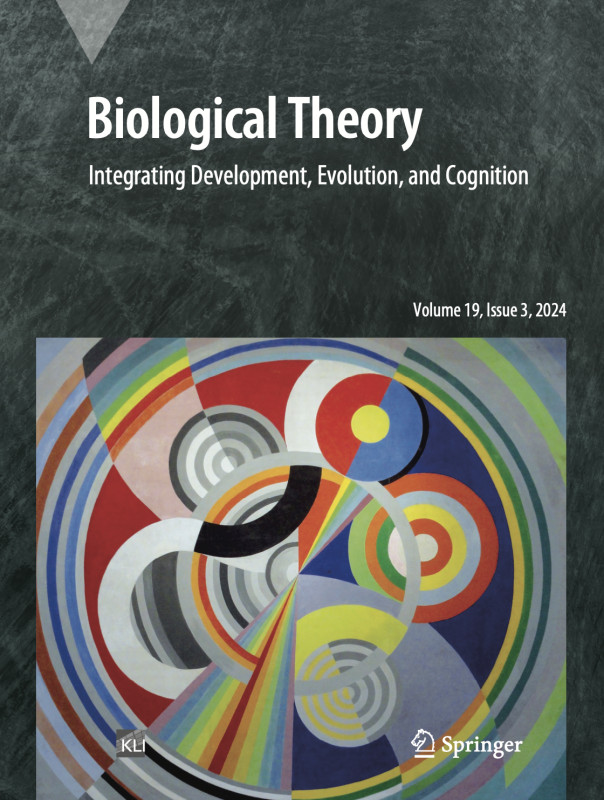News Details

Biological Theory’s current issue, 19(3), includes an article by Majid Beni challenging “the prevailing dichotomous approaches to goal-directedness” across the physics and life sciences, and supporting a unified account across different scales and domains for systems whose behaviors are constrained by certain goals or attracting pathways. Nedah Nemati examines how scientists’ lived experiences, or “experientially derived notions,” influence their behavioral research, writing about how this experience is used—and how it should be used—to refine the studied behaviors in sleep investigations.
In their article, Catherine Read and Agnes Szokolszky argue for placing approaches to agency within an ecological–mutuality framework, to provide insight by “focusing on perception and action at the core of all biological agency.” Also in the issue, Gustavo Soldati and colleagues report on their study of human–snake interactions in Brazil, identifying factors that influenced the ability to retain and recall adaptive information. They concluded that the frequency of an event is the prime influence for individuals’ retention, but severity can play a greater, possibly evolutionarily significant, role at the population level.
David Depew writes about the intellectual interactions between the evolutionary geneticist Richard Lewontin and his dissertation director, Theodosius Dobzhansky, one of the field’s founders. In the essay, Depew examines the “sometimes rocky relationship” between the two and the role of Lewontin’s Marxist views in what he conceived as salvaging and extending his mentor’s science and anti-racist ideals. Finally, Peter Takacs and Pierrick Bourrat continue a debate about their characterization of measures of fitness in population growth, responding to criticism by Autzen and Okasha. Sahotra Sarkar introduces Takacs and Bourrat’s reply, providing a framework for the exchange that additionally raises doubts about the utility of the notion of fitness itself.

